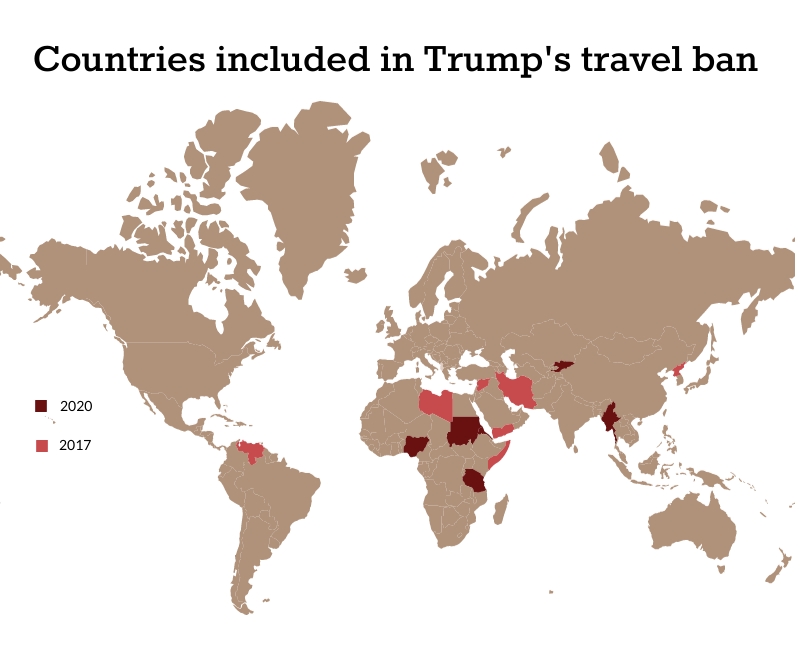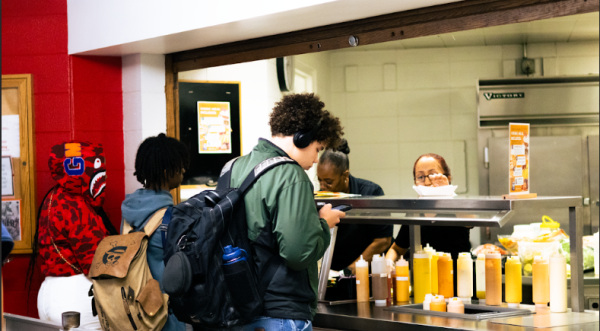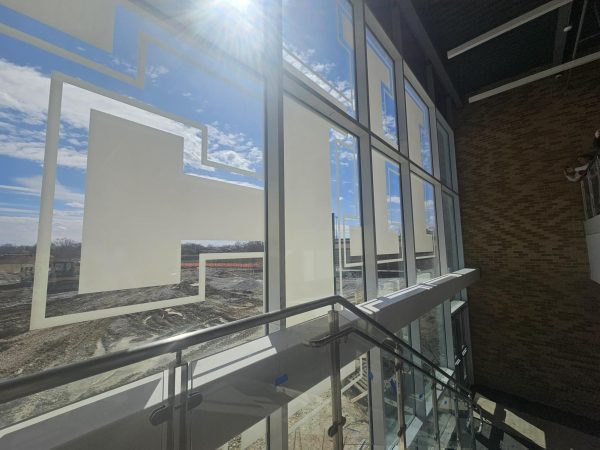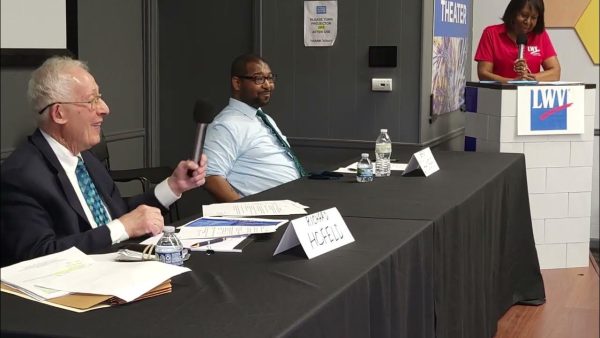Trump administration expands travel ban
More immigrants will be prevented from entering the U.S.
On Jan. 31, the Trump Administration expanded Executive Order 13780, President Trump’s ban on immigration from seven countries, popularly called the Muslim Ban, to include six more countries: Burma (Myanmar), Eritrea, Kyrgyzstan, Sudan, Tanzania, and Nigeria, Africa’s most populous nation.
The ban took effect on Feb. 21 and prevents immigrants from Nigeria, Myanmar, Eritrea, and Kyrgyzstan from getting permanent residency visas and immigrants from Sudan and Tanzania from getting a visa through the diversity lottery program, according to the New American Economy Research Fund. The ban doesn’t affect students and temporary workers.
According to The Guardian, some estimate that the ban will prevent more than 12,000 immigrants from reuniting with their families within the next year.
Illinois Senator Dick Durbin said in a press release on Jan. 31 that the “travel ban will hurt innocent people seeking reunion with their families and refuge from life-threatening situations. It is a tragedy that today, the Trump Administration pursues an official U.S. government policy that conflicts with our nation’s values. America must be and is better than this.”
According to the White House proclamation, each of the countries involved in the ban “does not comply with the established identity-management and information-sharing criteria assessed by the performance metrics.”
For Nigeria, the country that is most affected by the ban, the Trump administration claims that the country “presents a high risk, relative to other countries in the world, of terrorist travel to the United States.”
This decision to include Nigeria in the expansion comes after the Trump administration implemented a reciprocity fee for “all approved non-immigrant visa applications by Nigerians,” according to Quartz Africa.
Though The Voyager couldn’t get information on the exact number of Nigerians in our school due to the way that our school keeps records, it is evident that H-F is home to many Nigerian students. Many of these students have family members in Nigeria; them, like many others in the U.S., could be directly impacted by the travel ban.
Nigeria has the most immigrants of all the six countries, 348,000, according to Pew Research Center. The states with the largest Nigerian populations are Texas, Maryland, New York, California, Georgia and Illinois.
There could be a potential impact on the U.S. economy because Nigerian immigrants pay billions of dollars in taxes every year. According to the New American Economy Research Fund, Nigerian immigrant households paid $2.7 billion in federal income taxes and $1.4 billion in state and local taxes in 2018.
In anticipation of the travel ban being expanded, six bills have been proposed in Congress in an effort to limit parts of the ban.
In addition, the HR 2214, the NO BAN Act, which was introduced in the House of Representatives on April 10, 2019 after the original travel ban, was voted out of the House Judiciary committee on Feb. 12 and has a prognosis of 87 percent. A prognosis is the probability that the bill will pass in Congress.
According to the American Civil Liberties Union, if enacted, the legislation “would repeal the Muslim ban, asylum ban, and refugee ban as well as Trump’s most recent Muslim ban expansion.”
Regarding the bill senior legislative and advocacy counsel for the ACLU, Manar Waheed, said in a statement issued on Feb. 12, “…Now that the bill has passed out of committee, we look forward to its swift passage in the House without any further changes. We must end these bans and prevent presidents from using rank prejudice to discriminate against Black and brown people.”
All of the effects that the ban may have on immigrants from the six countries still remains unclear as we continue to learn details about the ban. Principal Jerry Lee Anderson said she believes the ban will impact our community in some way.
“I can’t imagine how something like that would not impact someone’s life. We have people here [at H-F] from all over the world,” she said. “…People will be more nervous about travelling, even people who might otherwise be authorized to travel…our country is made up of people would come from all over the world and just because you come to live in the United States doesn’t mean you leave everything behind and forget about everything you haven’t brought with you; just because you come here doesn’t me you forsake everything.”






